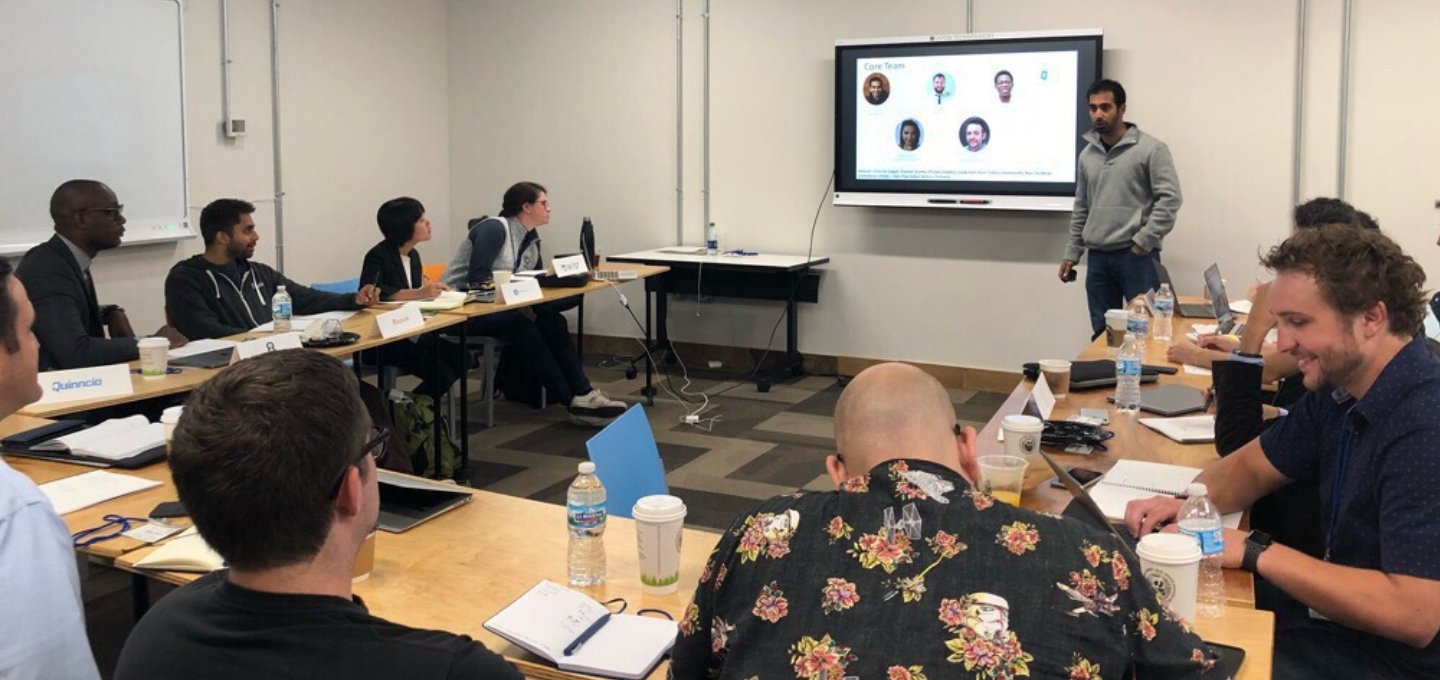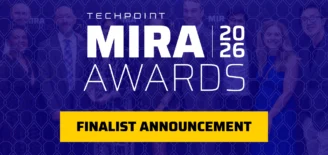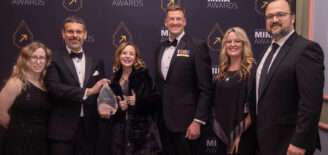Village Capital brings tech startups to Indy for invaluable advice
Imagine you have an idea that involves solving a major global issue. Perhaps your idea is about the environment and pollution, opioids and their impact on public health, or access to education for underrepresented populations.
You have an idea and a tech solution that no traditional investor will fund.
Tech entrepreneurs are usually well equipped to innovate, challenge, and disrupt established industries while simultaneously considering or even advancing the needs of our planet. Yet they require a different set of mentors, investors and stakeholders for their mission to succeed. Additionally, finding that unique capital to produce your world-changing innovation might not exist outside of the coasts.
Nine years ago, Village Capital was founded to address this problem. This year, they made a stop in Indianapolis and teamed up with local investors and industry stakeholders to educate their portfolio startups.
Venture capital firms typically focus on a particular industry or entrepreneurial challenge, and Village Capital focuses on five sectors that they believe are critical to the future success of society: agriculture, education, energy, financial services, and health.
In collaboration with AT&T, Village Capital’s US Education program focuses on supporting early-stage workforce development ventures with a curriculum, one-on-one mentorship sessions with sector leaders, and curated relationships with investors and other strategic advisors.
Participating companies go through a rigorous application process followed by phone interviews, which will result in a total of 10-15 companies that are invited to be a part of Village Capital’s US Education Program. Typically, these applicants have raised less than $3 million in funding and $1 million in revenue. Twelve companies were included in this year’s program.
“All selected companies must demonstrate that their product or service has some kind of societal impact,” says Marissa Lowman, head of education practices at Village Capital. “We also specifically look for companies outside of major tech hubs (i.e. Silicon Valley, NYC, and Boston) and look for founders who are women or people of color.”

Once accepted into the program, there are three workshops that founders are required to attend. Each is structured in a way that offers time for peer interaction, mentorship and advising meetings. Companies will give their pitches to sector leaders and tech investors to receive critical feedback that can shape the future of their business.
“The first workshop was focused on honing their value proposition and pitch. This second workshop focused on customer development. We set up several peer 1:1’s so they could work together to evaluate their peers while discussing important topics such as product market fit and scaling teams,” says Marissa. “Companies learn to think like investors and evaluate each other and themselves on characteristics that a venture capitalist thinks make a successful company.” At the end of the program, two companies will each receive $125,000 in pre-committed investment.
This year’s program locations included Denver, Indianapolis and New York City. When asked how Indy afforded the opportunity to host the program, Marissa credits their partnership with the Lumina Foundation. “Each program has partners who fund those programs and work closely with us and with the cohorts. One of them for this year is the Lumina Foundation, which is headquartered in Indy. They also have a focus on college persistence,” says Marissa, which ties into this program topic. “With Salesforce’s second largest office there, we saw Indy as an emerging tech hub.” Additionally, Marissa credits the large number of corporations they wanted to tap into.
Marissa visited Indy a few weeks prior to the program to build relationships and start selecting mentors and investors to participate in the program. Over three dozen individuals representing Indiana’s investors and largest institutions with a focus on education, workforce development, economic development, and closing the skills gap, were present, including: 50 S Capital, NCAA, Angie’s List, High Alpha, Allegion, The Heritage Group, Purdue University, Kenzie Academy, Start Fort Wayne, Strada Education Network and more.
Those relationships turned out to be invaluable for one company in particular. Quinncia, a startup based out of Boston, was accepted into Village Capital’s US Education program for 2018 and has attended both the Denver and Indianapolis workshops so far (the next one is at the end of this month). Quinncia is a technology startup with a platform that delivers career readiness material to help students find a job after college and improve college outcomes.
Village Capital was the first accelerator program that founder Himal Ahuja has embarked on with this company. The reason is due in part to the challenge of capital in education. “In the last couple of years, investment in education at early stages has dropped significantly,” says Himal. “There’s still a lot of investment happening, but it’s at a Series C or D level. That seed round investment in education is difficult.”
Given that Quinncia’s customers are universities and large employers, Himal was able to craft his business pitch and gain critical feedback from the institutions he wants business from. He was able to meet with Ivy Tech Community College’s executive director of strategic initiatives, the Dean of IU Kelley School of Business, and the CFO of Indiana University.
The candid feedback didn’t just come from industry leaders and professionals. “These kind of mentors or investors are not people who have made one or two investments but have invested in three or four companies every year,” says Himal. “They are very regular in education and in workforce development. From an entrepreneur standpoint, to get time on these people’s calendars and get introductions with them is super difficult.”
“All of the participating startups are pre-seed or seed stage. Some have raised institutional capital prior to joining, and some have bootstrapped but plan to raise venture capital funding post program,” says Marissa.
The hunt for funding is not new to Himal. “This is not the first time I’ve tried to raise funding. I tried last year and I struggled for six months and couldn’t raise anything. I still could not find out what was wrong in my business. I spent two weeks at Village Capital and I know why that happened now. For an entrepreneur to understand that in two weeks’ time, that’s invaluable,” he says.
Village Capital’s program, like the launch of TechStars in Indy, continues to enforce that Indy’s emerging tech hub is being recognized not just for its tech product companies, but the tech-enabled and institutions that are market-leading, major employers with experience and credibility to lend to the national tech landscape.
For more information about Village Capital, visit https://vilcap.com/.



